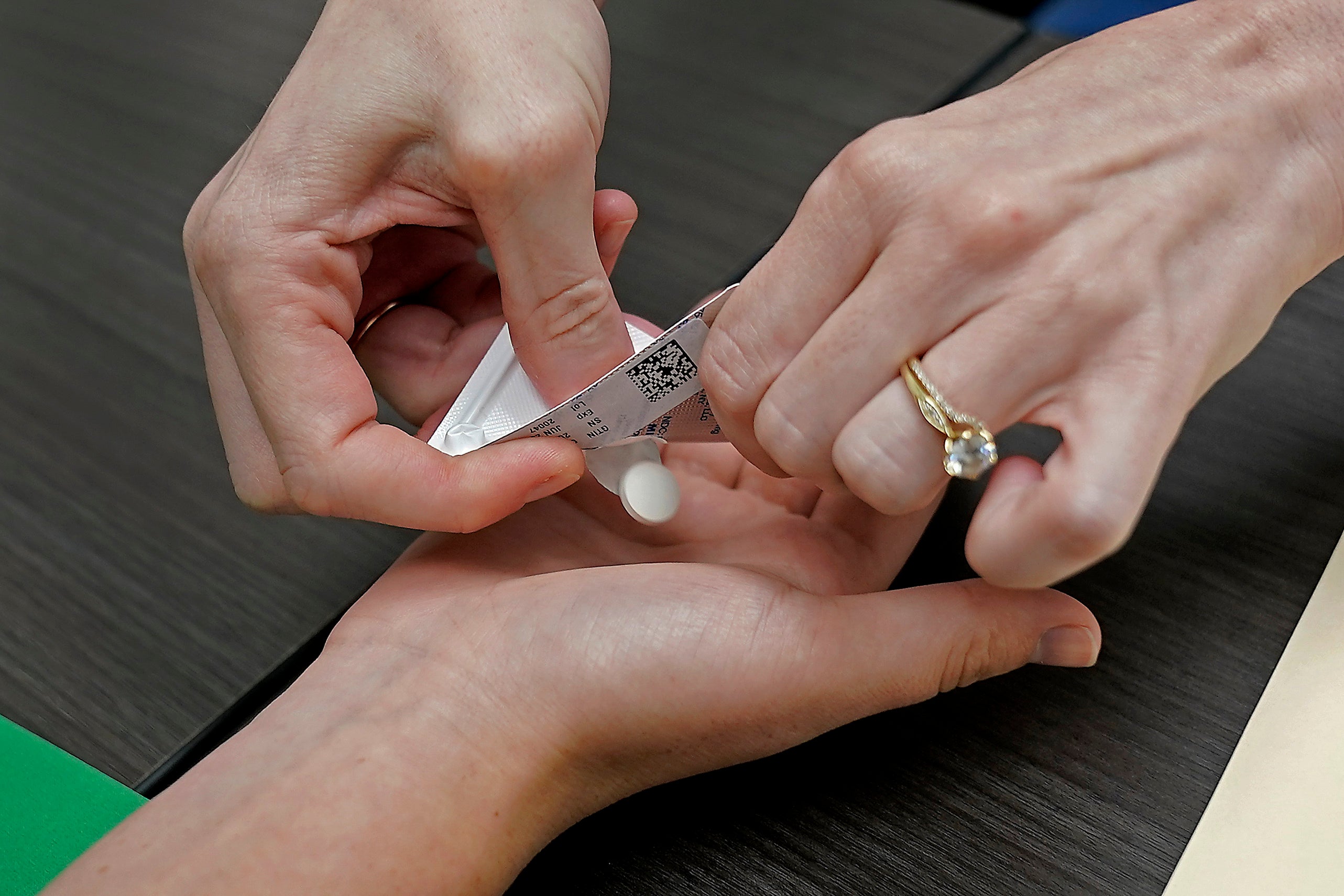
Abortion providers, clinics and abortion rights advocates and patients are anticipating a US Supreme Court decision that could provide some clarity about the fate of a widely used drug at the centre of the biggest legal battle for abortion care since the fall of Roe v Wade last year.
A federal appeals court partially blocked a ruling from a Donald Trump-appointed federal judge in Texas that would strip mifepristone’s approval from the US Food and Drug Administration, which has been in place for more than two decades.
On 14 April, the Supreme Court temporarily blocked the Texas decision, delaying any action until midnight on 19 April. A full order from the court will likely arrive next week.
A ruling to strike down the FDA’s approval of the drug could drastically impact access to abortion and miscarriage care for millions of Americans across the country, including in states where it is legally protected.
Abortion rights advocates and civil rights legal groups were stunned by both the lower court rulings, which they say are “unmoored” by both the law and science, including decades of research and guidance from major medical and public health organisations.
The appeals court’s decision “flouts the law and science just as much” as the ruling from US District Judge Matthew Kacsmaryk, according to Jennifer Dalven, director of the ACLU Reproductive Freedom Project.
“Instead of showing any deference to science … [the courts] chose to rely on anecdotal [information] from well-known anti-abortion extremists,” she said in a briefing with reporters on 13 April.
“Study after study demonstrates this drug’s safety,” said Dr Ushma Upadhyay, a public health scientist at University of California, San Francisco.
Instead, both rulings have relied on anecdotal reporting provided by the anti-abortion activist group that filed the lawsuit challenging the FDA’s approval.
“That’s not how scientific research works,” Dr Upadhyay said.
Unless the Supreme Court reverses both rulings, “this decision will prevent many people from getting abortion care and force them to remain pregnant against their will,” Ms Dalvin said.
“And the court makes it very clear this is just the first shot across the bow,” she added. “It leaves open the real possibility that when it comes up for full appellate review, it could well attempt to reverse the approval entirely.”
President Joe Biden’s administration, the US Department of Justice and the drug’s manufacturer aappealed to the Supreme Court seeking emergency relief that would allow the FDA’s approval to stand as the legal battle plays out.
Meanwhile, Ms Dalven said abortion providers “are really, really confused” about their legal ability to provide abortion care, with duelling federal court decisions and murky precedents putting them in a position “where they also must be legal scholars.”
“There is chaos, confusion and fear,” she said.
Several states are stocking up on mifepristone and proposing legal protections for pharmacists and providers who dispense the drug.
Erin Hawley, the wife of Republican senator Josh Hawley and the senior legal counsel for Alliance Defending Freedom, which is leading the challenge against the drug, said in a statement on 14 April that the group will urge the Supreme Court to “prioritize women’s health by restoring critical safeguards” against mifepristone.
The rulings also leave the door open for other activist-driven legal challenges to the FDA approval process, potentially inviting other destabilising lawsuits to Covid-19 vaccines and other life-saving drugs, according to critics and legal analysts.
Eva Temkin, a former FDA attorney, said the appeals court decision also “continues on the same dangerous trajectory that can have a chilling effect on innovation and drug development more broadly.”

Mifepristone is one of a two-drug protocol for medication abortion, a procedure that accounts for most abortions in the US.
The drug was approved for use by the FDA in most cases up to 10 weeks of pregnancy in 2000. Multiple studies have determined the drug is overwhelmingly safe and effective, and has been used in roughly 54 per cent of all abortions. A vast majority of abortions occur within the first nine weeks. In 2019, nearly 93 per cent of all abortions were performed before the 13th week.
Limitations on the drug are compounded by state-level restrictions on abortion access after the Supreme Court revoked a constitutional right to abortion care in the case of Dobbs v Jackson Women’s Health Organization last year.
At least 13 states now effectively outlaw abortion in most cases. Florida is the latest state to impose a ban on abortions at six weeks of pregnancy, before many people know they are pregnant. The measure effectively creates an abortion desert across the US South.







